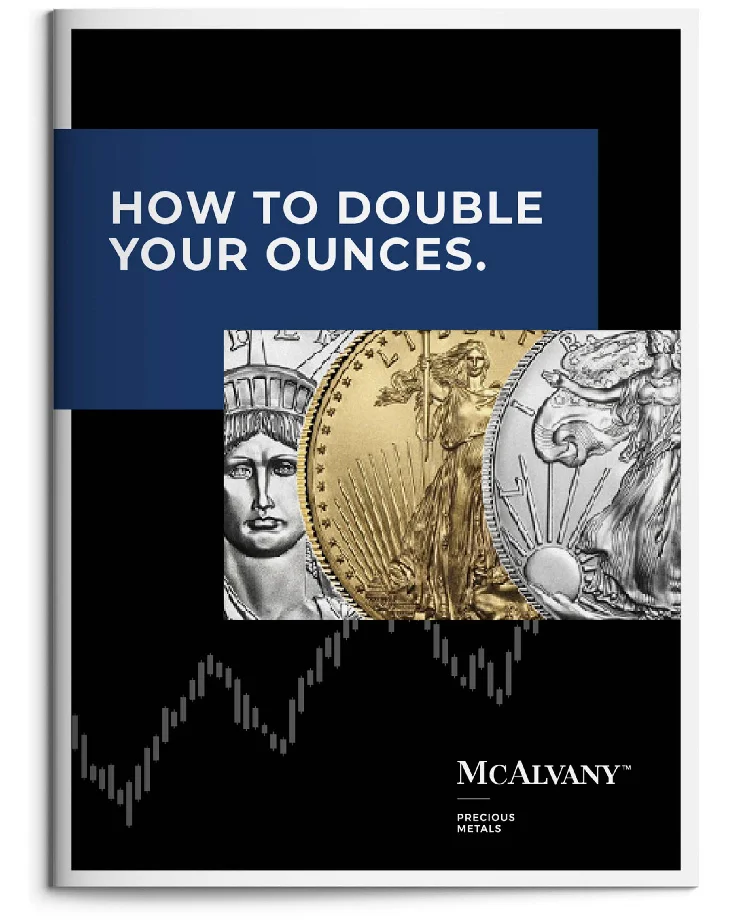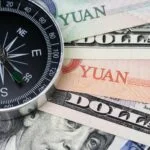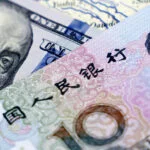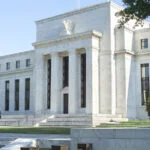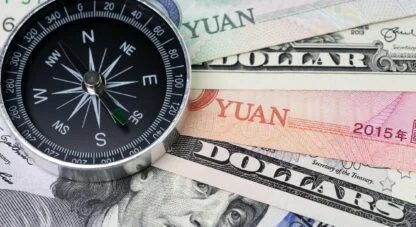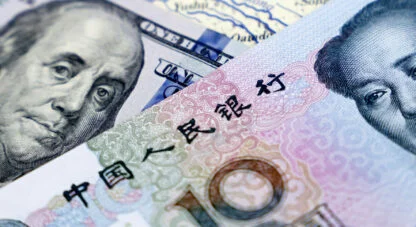Podcast: Play in new window
- China’s Document 9 reveals China’s clear differences with western society
- Rule OF Law vs. Rule BY Law
- Will the Dollar lose it’s Reserve Currency Monopoly?
“But the real moment comes when, because of Suez but slightly later, the British withdraw from East of Suez. The then government of my country accept that they are no longer a power across the world. The equivalent effect would be the United States withdrawing from the Western Pacific. Because of the significance of that for Beijing, I would expect Beijing to be very active in your backyard, in Latin America and in Central America and elsewhere, as of course up to the point they are. And I think one of the failures of US foreign policy over many, many decades has been in relations with Latin America and taking for granted that they’re weak and thinking that you’re protected by two oceans. I’ve heard it a few times in the States, not often, it is, “Well, we don’t even need cooperation with Europe to handle this contest with China. We can do it on our own,” to which the answer is yes, you may be able to, but the probability of that isn’t high enough for you to proceed on this basis.” —Paul Tucker
Kevin: Welcome to the McAlvany Weekly Commentary. I’m Kevin Orrick, along with David McAlvany.
David, our guest today is really addressing something that’s very, very large—the book that he wrote was very large as well—and that is how do different ideologies live with each other without hurting each other? And he puts a quote in the book, “Disequilibrium will be resolved by war,” by Robert Gilpin. And actually, I think what Paul Tucker’s doing with his book, Global Discord, is to say no, it does not have to be that way.
David: We first had Paul on the program to discuss his book Unelected Power, and I think it’s very important to engage in conversation around Global Discord: Values and Power in a Fractured World Order. He’s currently a research fellow at Harvard Kennedy School, and does a great job of marrying political theory and political economy. He holds a variety of other responsibilities as a director at Swiss Re. He spent three decades in central banking. From 2016 through 2021 he was the chair of the Systemic Risk Council. He served as the deputy governor at the Bank of England from 2009 through October of 2013. And I think he’s done a marvelous job of bringing together three areas which, frankly, are not often brought together, and that is public policy, an expertise in the financial markets, and with strong academic chops as well.
* * *
Paul, thank you for joining us again. Let’s start with your core thesis. “Where states fear each other, they will tend sooner or later to restrict cooperation and interdependence to areas where they feel safe, or that are vital for a semblance of international order.” You suggest that China and the West have entered a lengthy period of contest, or struggle, of competition that will last many decades, even a century, based on ideological differences. Should we think of this in terms of geopolitical conflict, or how different is this from the Cold War?
Paul: We should think of it as certainly a geopolitical contest and one that could tip into conflict. It’s different from the old Cold War for the moment in one very important respect. This is everywhere, in everything—neither side can knock out the other—and is deeply ideological.
The old Cold War was the same in three of those dimensions, but it wasn’t in everything, for the simple reason that Stalin walked his block out of the highways of the international economy from the late 1940s and 1950s.
So the Soviets were at all of the big conferences before the end of the Second World War, the Bretton Woods Conference—and I stayed in the room at the Bretton Woods Hotel which was occupied by the Russian delegation, decades afterwards, obviously—but they didn’t participate in that. They were part of the GATT talks, the trade talks, but they concluded not to participate in that. And the Soviet satellites in Eastern Europe all detached themselves as well.
And what that meant, particularly in the circumstances of the time, that all of the rich countries participating in the international economy, international commerce, were liberal in orientation. I mean liberal in a European sense, or becoming so. Japan, South Korea eventually.
It’s very different today, with China, from that because quite apart from the ideological contest and the incipient military contest, there is a commercial world in which we, very broadly, and China touch each other all of the time. And you see that everywhere: in rare metals, in their ownership of ports around the world, in their position in the equity market, the US Treasury bond market, FDI [foreign direct investment] in both directions. So it’s more complicated for the moment than the Soviet Western Cold War.
David: Global Discord has a chapter that deals, to a large extent, with this difference in ideology. And there’s one particular quote at the end of Chapter 9, “China is ‘an illiberal state seeking leadership in a liberal world order.'” So it really is a contest of ideas, and that, too, is sort of a similarity with the old Cold War. Is that reconcilable?
Paul: I think not easily. It’s a quote from Elizabeth Economy, who’s now at Stanford, but for a while was, I think, an advisor to the Commerce Department in the Biden Administration. But before that, she had written books about China, and that quote was taken from one of her books, right at the end of a chapter that is about the deep ideological differences, if you like, Chinese civilization and Western civilization. I don’t actually think it’s a civilizational struggle. We can come onto that.
But the differences are very deep because the histories are very different of how power and authority related to people. The history of the West, which is really a history of Europe before it moves to America, is a history of fractured power, and then a rival authority between secular emperors and the Catholic Church, the Pope. In the medieval world, they were separate poles of power, which in some respects is, I think, an origin of our idea of separated powers.
But we have inherited an idea of the individual that is different from the Confucian tradition of individuals always being defined by their roles and their relationships, and in particular, a structure of hierarchical relationships. China’s not alone in the world, or in history, in having a power structure that leads to one person. There have been plenty of other examples over the centuries, but that has not been true in our world for many hundreds of years. That means, I argue, that the differences run very deeply and will be hard to reconcile, and I think one sees that in the way that China has behaved towards its neighborhood over the past 10 years or so.
David: Chapter 9 highlights a few critical points, which I hadn’t considered: the one that you just mentioned, the different conceptions of the individual, and this dates back many, many centuries for the Chinese. The other is the rule by law as opposed to the rule of law. Maybe you could expand on that.
Paul: Look, the first thing to say about it is there was a very ancient Chinese dynasty, the Qin, which is where our way of saying it, China, comes from, which is 2,200 years ago or something like that. They didn’t rule for very long, but they ruled by law. It wasn’t ruled by wisdom. It was ruled by rules.
But the rules weren’t tempered by the rulers themselves being subject to the law. One of the great breakthroughs for us, and the way we think of ourselves, and more importantly the way we live our daily lives, is that our lawmakers are themselves subject to the law, however grand they be.
And this isn’t just a point today about American presidents or British prime ministers, German chancellors, et cetera. This is something that was forged a few hundred years ago in terms of European monarchs, particularly in my country, being subject to the law. And again, this was to do with the barons, as it were, the magnates holding the kings to account. This isn’t just about the past.
A few years ago, after leader Xi became the leader of China, some of his closest associates made speeches where they said, in effect, the party stands above the Constitution, and the rule of law and the rule of the party is one.
One of the things I want to try and get across is separating how we feel about that in a judgmental way from just understanding it. This is a tradition. It is a tradition where rulers can be above the law, and that is not our tradition. We started out the same, of course, and we got to a different place through many struggles. And the Qin ruled by law, but not with the emperors being subject to the law themselves. That’s gigantic, actually.
David: Yeah. So for us it’s the Magna Carta, it’s the Treaty of Westphalia, it’s a number of other agreements which serve as the basis of the rule of law. Without that history, the rule by law is more common. You said this isn’t necessarily a civilizational difference, maybe just an ideological difference. How do we navigate these differences when considering global discord or peaceful coexistence?
Paul: So the way you’ve just posed the question is, “Isn’t that a civilizational difference?” My answer is yes. But my answer to the question, “And does that mean that the contest is civilizational?” my answer to that is no. And this is really important.
Actually, it became important for me personally as I worked on the book because South Korea, Japan, Taiwan, but let’s just focus on South Korea and Japan, they are Confucian heritage states with representative democracy and some separation of powers and the rule of law. And yet, without claiming to be an expert, I think I know those societies well enough to know that they haven’t lost their sense of themselves, their sense of history, their own traditions.
In other words, they’ve adopted and adapted the rule of law and our form of constitutionalism without becoming us. They’ve remained themselves. Actually, I think this is really of profound importance that you can take these things that happened to have emerged first in the West, and, if you like, graph them and grow them in societies with Confucian heritage.
I’m not somebody that thinks that the rest of the world ought to become like us. I think that’s been a mistake in Western policy over much of the past quarter-century. But I think there is this profound truth that you don’t have to be exactly like us in order to adopt the rule of law and representative democracy. I think that’s hugely powerful, and it means that being concerned about the manner of governance in China, because I think that’s what it’s ultimately about, isn’t the same as being anti-Confucian or you must junk your Confucian traditions.
David: It brings us back to these points of resistance that the current Communist Party Central Committee has put out there. Document Nine is something that you highlight as a neglected document. Document Nine, a Communist Party Central Committee document from 2013 that discusses the seven nos that illustrate differences between our ideological values and objectives, those of the Chinese, what does that document convey about the opportunities for cooperation or the challenges to cooperation?
Paul: I think the answer’s not good. So the first thing to say is that Document Nine was either released or leaked, I’m not sure people are sure about this, in 2013 from the Central Committee. It has seven nos, five of which are addressed to basically saying you Chinese people mustn’t go around promoting, contemplating, proselytizing any aspect of liberal democracy, whether it be basic rights, freedom of the press, democratic assemblies, and so on.
It’s important to say I’ve been lucky enough to be able to present this book in many places in both North America and in Europe, and a bit in Asia. If I ask groups, small or large, running to many hundreds, possibly a thousand on occasion, “Hands up, how many people have heard of Document Nine?” the answer is always about 1%, with hardly any variance around that. And this is a very surprising thing given that this is released not long after Xi becomes leader, and it basically says, “We absolutely reject the ideology of the Western political system, and you Chinese people had better remember that.”
And I think it does not rule out cooperation and coordination where it is plainly in the interests of both sides. The word side is a word that Beijing would use. But going back to where you began, I think it does underline the extent to which we do not have deep values in common, and we are a risk to each other. I think this is symmetric, we are a risk to each other, and therefore I think it is natural that there will be some decoupling. Now, in a sense, I was both calling for that and predicting it before it got underway. In the trade area it’s now called friendshoring. And of course, I accept, and have always accepted, the point that this process can overshoot. And there is a risk of it spiraling away into the kind of protectionism that impoverished great parts of the world, including our parts of the world, in the 1930s.
But I was recently at a presentation in a conference in Washington, and someone was saying eloquently, “This friendshoring, it’s welfare depleting.” And I asked the question, “Well, are you taking into account the welfare costs of a superpower struggle where we lose, and we lose because we’re unnecessarily or avoidably vulnerable through dependence on various things from China?” And the answer was, “No, that’s not in my model.” And all I’m saying is, well, actually the first political question is always one of safety and order and security, and we mustn’t forget that. And that needs to be balanced against everybody’s desire for prosperity and trade. There’s no formula here.
I don’t know the answer to the question I’m now going to pose, by the way. But you think about the massive factory that Apple has in China, and imagine that in some kind of conflict, God help us, our access to anything from that vast factory—the factory is the size of a city—was switched off, we lacked access to it. There is a really important question about whether this would be really inconvenient for consumers around the world, including consumers in North America and in Europe as well as elsewhere, or whether it would be more dangerous than that.
And I think there is no substitute for people right at the top in the key capitals, and therefore most important of all by far Washington, just having to make these judgments about what is really going to matter in a conflict, and what is not going to be absolutely vital. We’re in a curious state of affairs where we need greater leaders than we’ve needed for many decades after a period in which politics on both sides of the Atlantic has been more fraught than for many decades. But that’s where we are. That’s what the geopolitical tectonic plates, that’s where they leave us.
David: A recent survey in Europe amongst business owners suggested that about 7% saw an improvement in relationships with their Chinese counterparts. 54% saw, over the next three years, a decline in those relationships. And we’ve seen a number of US law firms shutting down, shuttering their offices in Shanghai and Beijing because business is slowing down. And I wonder if this isn’t the front edge or maybe the consequence of this friendshoring. Mexico now is number one trade partner with the US, where it was China previously. This brings to mind for me the consequences of a financial market accident. If a financial market accident were to occur in China, how does that impact the longer term Chinese objectives?
Paul: So there are two big questions there, if I can try to separate them out. The second one is what happens if there’s some kind of financial crisis, let’s say, in China? But the first one is if people are reining back, it’s just the way things are going to go.
And what I want to say about that first part of your question, if I may, is yes, but sometimes no in that if I’m even just broadly right that this is going to go on for many decades, maybe longer than a century, then I think the closest comparison is between the long struggle between my country, Britain, and France, when it was a great power from the end of the 17th century to the beginning of the 19th century, roughly 120 years.
And during that period, there were lots of wars. Of course, there weren’t nuclear weapons, so the wars weren’t completely fatal, but they were world-changing, including for North America. But there were periods of rapprochement, of calm and trying to find points of cooperation. There was some kind of trade deal in the middle of the 18th century, I don’t remember exactly when now, and this was a beacon of hope. And then, actually, France of Britain fell into squabbling again and perhaps having another war, small war. And that moment of a clear trade pact wasn’t recovered until the 1860s. And the British-French trade act in the 1860s changed the world. So a long period, about 50 years after the century-long struggle had ended. But during that century-long struggle, there were periods of calm.
I think in some respects, although what you described in commerce is right, on the military front, things have softened a bit in recent months, where for ages Beijing didn’t want to enter into or agree to deescalation protocols with Washington of the kind that existed between Moscow and Washington. And beyond that, for some period, not short, actually stopped military contact, by meaning top officers of the military meeting each other to discuss things. And that’s resumed, I think, since the leaders of America and China met in the margins of—was it the G20 meeting in San Francisco? Some meeting in San Francisco. I think that’s what it would be like.
I think this bridges to your question about the financial crisis in an interesting way. And I think there will be periods in which it looks as though it’s getting better, and everyone will say, or too many people will say, “Oh, look, it’s over,” and it’s almost the inverse of that.
I think if China has some kind of financial stumble, as it might— There is a lot of debt inside China. It’s obviously not at all externally debted. It’s a massive external creditor. The United States and the UK are massive external debtors. But it’s got lots of internal debt, and it could easily stumble. And were it to do so, I think that lots of people around Wall Street and around the City of London will say, “Well, that’s it. That’s it all over. They’re moving sideways now like Japan did from the ’90s.” And I think that will be a mistake. It will certainly be imprudent, even if it turns out to be true in practice after many years.
But I think that China is capable of absorbing a crisis and recovering from it. And of course that is what North America has done, the United States has done, and my country has done, Continental Europe have done for the past 200 years. I mean, the idea if they have a financial crisis then well that’s it. Back to normal. America is top dog, unchallenged. I think that would be a brave and therefore reckless inference to draw.
And I think if I may say one more thing about that, I think the comparisons that some people sometimes make in terms of, oh, they’ve got too much debt, they’ll stumble like Japan. Germany was a great irritant to the United States in the 1970s and into the 1980s because Japan and Germany were the two other economies to do really, really well some while after the Second World War. And Washington was no longer completely unchallenged because there were these incredibly dynamic economies who for goodness sake had been on the other side in the Second World War.
But by the time all those squabbles were taking place, which led to the Plaza Accord and the Louvre Accord about dollar and the yen and so on in the ’80s, Japan and Germany were constitutional democracies that were sheltering under the security blanket provided by the United States. China does not shelter under the security umbrella from Washington, and Europe does. Japan does. It’s a very interesting relationship between the US and its allies, but China does not, and it has the differences in system of government and ideology that we talked about earlier.
So that’s a long answer, which is yes, there may be a crisis in China, but unless it dislocates their domestic politics, and I mean really dislocates it, then I think not much will change in terms of the contest. And the Communist Party has proved remarkably resilient in the face of domestic crisis, whether it’s the famine that follows the great leap forward from a long time ago, or huge turmoil during the Cultural Revolution, and many changes of leadership.
David: Well, the Chinese do seem to be moving forward with what is at least a sector crisis within their real estate development area with Evergrande and Country Garden and Longfor and Kaisa and Vanke and these companies under acute stress with an overbuilding of real estate, 60 million units, empty— Goldman Sachs estimates a shadow inventory far greater than that. It seems that they are limping along. The question is, if they’ve just transitioned their locus of growth back towards what they’ve been dependent on for some time, mercantilism—produce goods, distribute them throughout the world—if they have to pivot to that, or back to that, for growth to hit their GDP targets, does that become contentious in terms of global trade as they try to maintain a larger slice of the global commercial pie?
Paul: Yes. Economic orthodoxy and probably in terms of political comment, the best thing to happen would be China emphasizing domestic consumption growth more and then exports less. And there are good reasons to think that isn’t going to happen. There are good reasons to think that they find it hard to detach themselves from the system of subsidies that exists in their domestic economy and behind many of their exports as well, which was at the root of a WTO dispute about a decade ago.
I think your listeners will be know this already, but just in case, anyone who’s thinking, well actually terrible all the subsidies in the Chinese economy. If you sit in Europe, the Fannie and Freddie system for subsidizing home ownership for mortgage guarantees is absolutely extraordinary. Why would a rich country need to do that?
The point isn’t the judgment. The point is actually the formidable political difficulties of moving away from that. In this respect, one can bring the same analytical apparatus to thinking about, can China get rid of its subsidies? Well, probably not easily. Can the US get rid of its subsidies? Probably not easily. Can Europe get rid of its system of very different subsidies? Probably not easily. Subsidies are difficult to remove because people like them. And this is nothing to do with political partisan comments. Many of the subsidies in the United States are to operate very strongly in red states.
David: You use the terms thick or deep to describe societal connections. It doesn’t seem that we have many between the PRC and the West. Are we watching a global polarization between a block of countries that would more closely associate with China? And again, this comes back to the ideological basis for global discord. Is that what we’re seeing is a continuation of polarization between Western ideals and perhaps non-Western ideals? Do we actually share some thicker deep societal connections or are those lacking?
Paul: Thick and deep things, other than we all as humans share an aversion to pain— Mencius, or Mengzi, would be called in China; Aristotle in our tradition. They both talk about compassion for a stranger’s child if the child is nearby. There are certain basic human things that we have in common, and actually that is a source of hope—and commerce is also a source of hope. One of the great reversals of the way people thought about the world in the 18th century is that people like David Hume and his friend Adam Smith thought that commercial society, as they called it, broadened people’s perspectives and in super slow motion could help, not necessarily bring people together, but stop them moving apart.
And I basically think that’s right, but it has to be tempered with caution. In the run-up to the First World War, there were plenty of people in London, in Germany, I think in America who thought, “Britain and Germany can’t go to war. Their commerce is so intertwined—and not just real economy to commerce, but financial markets.” And they were. The First World War was an incredible blow culturally to the City of London. What’s happening? We’re at war with our friends.
I think the reconciliation of those points is that commerce and commercial society does bring us together in slow motion, but it’s pretty slow motion, and it’s not a reason for thinking that we can avoid conflict. Then there are common causes where, what about existential threats? Can we make a common effort together on climate change? The big actors on climate change have to be United States, Europe as a whole, China, and India. And you’d want, as a former official, the COP [Conference of the Parties] conferences are vastly too big to reach the agreements that are needed. So lo and behold, it’s bilaterals between Washington and Beijing that really matter.
And let’s say you and I are advising the leadership in Beijing, and we’ve been pressing some measures to alleviate climate change in ways that would join with the Western world, but actually there’ll be cost of that in the short run. And I’d expect the leader to ask, how many aircraft carriers is that going to cost us? The unit of counting would be, they’ve got fewer aircraft carriers than the United States. That’s not a very comfortable place for them to be, from their point of view. If they’re going to suffer some GDP setback or budgetary setback by helping to mitigate climate change, well, if all the costs went to the military, what would it be? And if it can’t be there—and it won’t be there—well, where else could it be? And that’s just how things are going to be.
And this is part of a greater worry that I have that climate change has become associated with a left-wing cause, whereas it’s nothing of the kind. And the fact that it’s a partisan thing impedes the capacity for the main states to find a way through the formidable difficulties that they face in cooperating on this stuff, even if we had no domestic political differences at all.
David: In an era where liberal democratic institutions are under increasing criticism, how would you suggest we maintain confidence in our core institutions in the rule of law, in representative democracy?
Paul: Actually it’s the topic of my new book project, and so I don’t know quite where that will land. I think part of the answer is we have to remain confident in our political way of life and remind ourselves just how precious it is. Not so long ago, Hume and Adam Smith were celebrating commercial society where it wasn’t so long before that that a man in Europe was tied to the land, couldn’t move to find work elsewhere. They couldn’t sell their labor.
So it was fantastic that we’ve been able to do that and build a liberal society where liberal doesn’t mean left. I mean, one thing I would recommend Americans to do is increasingly use the word liberal without it meaning left. I have no partisan preference, but the people they called progressive, we call them left wing. We call various other people right wing. And there’s nothing necessarily left or right about being liberal because liberal is the umbrella in which we— It provides us with certain basic rights and ways of choosing whose governance for now, maybe right wing governments, maybe left wing governments for a while.
They all disappoint us eventually, and they lose, and we carry on. And that is true whether one has presidential separation of powers system as in the US or parliamentary system as in the UK or a semi presidential system in France. The things I’ve just said are true in all of them. And we ought to remind ourselves that it’s not to be taken for granted. It’s an achievement, a political achievement. It’s not an achievement of the people that wrote all the books, famous though they are. It’s the people that took those ideas and made them tangible in institutions. If you go to court on either side of the Atlantic, both sides will have a say, the documents will have to be disclosed. As soon as one thinks like that, it can also alert us to things that we need to improve. Judges should not be partisan.
David: Chapter one begins with a famous quote from John Connally, Nixon’s Treasury Secretary, on the dollar, “The dollar is our currency, but your problem.” We have the US debt and currency markets, which are relatively stable to date. If there was a crisis of confidence with either our fiscal policymakers or monetary policy designers, what are the implications for global stability?
Paul: So let’s just dwell on John Connally for a second. He had been the governor of Texas. I think he was in the cavalcade, maybe even in the same car—I can’t remember, I apologize for that—when President Kennedy was assassinated. He was later Treasury Secretary in, I think, the Nixon administration.
The US fiscal position and its external position, its current account deficit and everything, and inflation is going wrong in the beginning of the 1970s. Bretton Woods system still existed then. So the French franc and the British pound, etc, etc, were attached to the dollar, and the dollar was attached to gold. Some capitals in Europe, particularly Paris, were concerned that the US would not be able to sustain its parity against gold. And actually, during the 1960s, France had asked for some of its gold back, but this got worse in the early 1970s. And there were discussions about how to adapt the system in meeting in Washington.
Secretary Connally says, “It’s our currency, but their problem.” He also said, “By the way, they’re trying to screw us so we should screw them first.” And my overall impression of Connally is that, however formidable a politician he was—and he was, he was a man out of his depth in those circumstances because this was a series of questions about how to make the currency system work. Not a problem among incipient enemies, but actually among closest allies.
And the allies of the United States were worried because there was this question about whether the United States could sustain its parity against gold, which the answer was no. And whether we could sustain our parity against the dollar, to which the answer was no as well. And then there was the question: if we all floated—as we eventually did after a cockeyed attempt at something else—would the United States, with the dollar being the anchor of the world, be able to deliver low and stable inflation?
And people were worried about that. And actually we can look back in history and say, “My God, they were right to be worried,” because actually it turned out that the United States couldn’t sustain low and stable inflation, and it was almost completely out of control when Jimmy Carter appointed Paul Volcker.
It took him the best part of a decade to wrench inflation under control and Alan Greenspan to cement the job because the job could only be cemented by Volcker’s successor, because otherwise maybe it was a one-man show. And it’s worth remembering that history because it shows that sometimes currency crises are signaling something profound. And that was the case then, and Connally was wrong, and no one was trying to screw anybody else in the longer run.
The reason it’s worth dwelling on is the United States keeps the world—our part of the world—safe. It keeps the sea lanes open. This is an extraordinary thing. My country did that under the so-called Pax Britannica for maybe 200 years. And the capacity of Washington to do so depends, among other things, on the dollar being a currency that people want to hold around the world and want to invoice their things in and want to hold their reserves in—their surplus liquidity. And that depends upon the Fed keeping inflation low and stable. And it depends upon the United States not building up debts that people start to worry it won’t be able to pay.
For example, the suggestions that Fed independence will be ended by compromise, undermined—whatever by a new president, that should be thought of as a national security issue. I don’t mean in respect of the candidate, but just that Fed independence isn’t some weird thing for economics people or people that work in financial markets. It is an absolute precondition for America’s position in the world and the safety that you bestow upon many of us.
Likewise, when there was that thing going through Congress—was it last year?—about the debt ceiling, and there was the question of whether there would be a technical default. I gave an interview to one of the wire services where I said, “Yeah, vote default. Vote Beijing.” Beijing would be the only beneficiaries in the world, or the main beneficiaries in the world, of a technical default by the United States. And I think that people within the Beltway in Washington have partly, because of President Trump’s first term and the way he serviced this issue, I think they have got that foreign policy is in a different phase. I think there is little evidence that they understand that some big areas of domestic policy, including monetary policy and fiscal policy, have a bearing on foreign policy on the geopolitical contest.
And no one should be in any doubt that the great beneficiaries of the global financial crisis in 2007, 2008 were in Beijing, and Beijing understood that, and became more confident after it. We shouldn’t criticize them for that. We should observe it and think, “Yes, having a financial crisis was a really bad thing, not just in terms of the pain it inflicted on people’s livelihoods and businesses, but also because it risked weakening us in the world.” And yet last year America flirted with another banking crisis, and we had one of the biggest banks in the world collapse in Switzerland. So I still don’t think that domestic policymakers have understood the stakes.
David: Your comment that the Fed’s independence is a national security issue. We think of the dollar and how essentially it operates as the world’s reserve currency. It needs to be needed. I wonder if the weaponization of the US dollar has changed the world’s interest in it remaining the global reserve currency. And if that too isn’t a national security issue.
Paul: I was still an official when it was decided, to put it in broad terms, that the authorities would look inside the SWIFT messaging system as part of enforcing various sanctions. And without too much exaggeration, I think it’s fair to say that those on the political side: this is a great idea. Of course we should do it. The sanctions are really important—which they were, and they need to be enforced—which they do. And the central banking room that I was in, there was a sense of, oh my goodness, this is Pandora’s box. Once it’s revealed that can be done, that will be a bit of a change in the world. And other things being equal, it will increase the incentives for people to find alternatives to the dollar.
Now, some of that happened, I mean actually Continental Europe itself wanted to find a different messaging system for a while, but China has done so. And my point isn’t at all that this was a mistake to look inside SWIFT. It’s that, my goodness, these are decisions that involve really— I’m going to put it in very English terms: this is for grown-ups. This is for people right at the top. Seed of all the issues making very difficult balancing judgments that might affect history. On the one hand, there’s no point the dollar being used widely and have our world fall apart because bad state actors undermine us because we didn’t sanction them.
On the other hand, if we undermine the use of the dollar, we weaken ourselves over the medium run. Great leaders in history have had to make those judgments, and what’s important is that they understand what they need to balance. There was a former US Treasury Secretary, Jack Lew, who gave a speech in the United States a few years ago. I draw from it in my book Global Discord. And the former Secretary Lew was arguing not that the wrong choices had been made, but that actually it was really important not to think this was some kind of free lunch and become—again, a rather English way of putting it—become overexcited about the use of sanctions, but weigh the costs of doing so. And there is no formula for this.
David: A recent Wall Street Journal article suggested that the increase in gold purchases amongst central banks was a means to making reserves “sanction free.” So we think of the weaponization of the dollar, what’s happened since 2022, the imposition of embargoes, asset freezes, the removal of Russia from the SWIFT system. Just this week we had the Indian Central Bank repatriate 100 tons of gold from the Bank of England, seen an uptick in gold ownership among central banks. As a former central banker, how do you interpret the increased demand in gold by reserve asset managers?
Paul: Partly the main central banks haven’t done a good enough job of keeping inflation down. So part of this increase in demand could just be as a inflation hedge. I mean, if you want an inflation hedge, gold is going to be a lot better than crypto. People think that crypto could be a hedge, but that’s kind of slightly bonkers.
I think it’s also slightly geopolitical with India. This started when I was still at the Bank of England. They had gold in the Bank of England vaults. The Bank of England, the UK itself doesn’t hold very much gold, but it’s still one of the biggest gold vaults in the world on an agency basis. And India and politicians in the Indian Parliament had said, “Why is our gold in London, if you like, and our former colonial invaders? And we should have our gold back in India,” which is a terribly expensive thing to do because they probably had to insure the transport of it.
Things like that are going on that are different from an increase in demand for gold. I also saw in recent days a survey from an outfit in London, but actually with a Washington branch, OMFIF [Official Monetary and Financial Institutions Forum], a survey of reserve managers around the world, central bank reserve managers, revealing that there had been an uptick in demand for the dollar.
So I think it’s kind of important to disentangle longer-term trends from the ebb and flow of demand based on things like, are they keeping inflation under control. And we should expect over time demand for other currencies to increase. If you put the ECB and the Bundesbank together, I’m confident Europe has got a better record over many decades of keeping inflation low and stable than the United States, and that’s one reason that people hold euros. But the euro isn’t used as the world’s ultimate reserve currency.
The test of this, I think, is as follows. There was an extraordinary, it wasn’t a moment, a period in the 2007, 2008, 2009 crisis where, remember, it matters to this point that this is a crisis brought about by American improvidence among American households, American banks, American mortgage brokers, American policymakers, and European ones as well, including in London, of course, but focusing on America.
So the world is imploding partly because America is imploding, and if it had been any other country in the world, its debt would’ve fallen in value. In other words, it would’ve had to pay more to borrow. But in fact, there was a rush of demand around the world to hold US Treasury bills and short maturity US Treasury bonds.
This was extraordinary. I wasn’t terribly surprised, but I remember watching it and thinking, that’s what it is to be the world’s key reserve currency issuer, that when things are dire, you want to hold US Treasury bills because that’s the safest asset in the world.
But ultimately that depends on three things, which is the Fed’s performance, keeping fiscal policy and your external debt under control, and underlying growth so that you continue to be an incredibly prosperous, dynamic economy.
The third of those things is incredibly difficult to achieve always. The first is the Fed’s job, and people on every side of American politics, other than revolutionaries, should support the Fed in their core mission, and the Fed should remember to stick to its core mission.
David: So is it different this time if we had something equivalent to the global financial crisis? So we have 36 trillion in debt, we have inflation back in the picture after many decades of absence. Do those factors weigh against Fed performance, fiscal policy, underlying growth?
If you look at our revenues expected for 2024, we have an interest line item. Worst case scenario, according to the Congressional Budget Office, of close to 27% of all revenue going to the interest line item, which doesn’t seem normal to me. It doesn’t seem reasonable to me. Does the world clamor for Treasury bills in the event of a financial crisis 2.0 given the change in this backdrop?
Paul: I think the simplest and biggest point to make is that when the financial crisis occurred, no one was very concerned about inflation, and therefore it was possible absolutely to slash interest rates and provide a lot of other support to the economy. Now, of course, the financial crisis itself would push the economy into recession, and that would tend to bring inflation down. The point is about what people expect to be the steady state of inflation, that you are better placed, we are better placed in Europe, to absorb and combat a financial crisis, if one occurs, so long as people are confident, but the inflation will be low in the medium to long run.
I’m part of a generation of central bankers that is involved in cutting interest rates very sharply as the crisis completely reached its worst, and that helped avoid a repeat of the Great Depression, and that’s an extraordinary thing, and actually it’s just from learning from the earlier episode 70 or 80 years before.
But I remember thinking at the time, we wouldn’t be able to do this if politicians were still deciding interest rates. The markets would be reacting badly. We were able, and I mean we, plural, in the United States, Germany, UK, Canada, we were able to hold the economy in the face of a financial crisis because we had built up strong credibility on low inflation, and some of that credibility has been handed back over the past 10 years, and that was avoidable, and it has to be cured. And that’s, I think, why the Fed is being cautious about moving into easing faith on their [unclear] given the mistakes they made earlier.
The biggest thing here is just to ensure that, well, first of all, that it’s less likely that a crisis occurs, and secondly, that if a crisis does occur, there are remedies other than bailing out the banks. This isn’t the occasion to say that there are techniques for doing that, but the complete mess-up around SVB and the American regional banks, completely avoidable, and around Credit Suisse in Europe show that these, especially with the American regionals, it’s not that, “Oh my goodness, we’ve learnt lots of new lessons.” There’s nothing to be learnt other than actually bother to implement your own policies.
The Fed and the FDIC, the insurance agency in the United States, deliberately chose not to apply some of their policies to regional banks that were heavily dependent upon wholesale deposits, and lo and behold, there was a run and there was no plan for dealing with it. Extraordinary. This is because the stakes are higher now. This isn’t 2007, 2008.
I think there are three massive things in terms of, if you like, precepts for public policy in the decades ahead. One is, remove avoidable vulnerabilities that could harm us in a conflict. Secondly, remember we need friends and allies everywhere, and don’t be a kind of fly-by-night friend, but remember decade in, decade out those friendships. [unclear] need to understand that. Washington hasn’t always been good at that. I think it’s been much better under President Biden than it was for quite a while before that. And thirdly—and this is the one that links to domestic policy—do not make unforced errors that can damage, most importantly, America’s position in the world, but, second most importantly, Europe’s position in the world. And just in the world of banking, the evidence of 2003 is that people haven’t got that.
David: I want to come back to Global Discord, but you did recently put together a paper for the Swiss central bank, and in 120 pages, you look at the demise of Credit Suisse, and I wonder if there’s not lessons, while we’re on this topic, of banks and post-global financial crisis, lessons to learn, credibility to maintain. What was missed here with Credit Suisse? I remember Bagehot’s comment, and it seems like the quality of collateral might have been an issue, and being willing to lend against quality collateral at a reasonably high rate. We’re doing it at very low rates, and I just don’t see the quality piece being adhered to.
Paul: The Bagehot precept, lend at a high rate, is it’s kind of a penalty rate relative to your current policy rate. It doesn’t mean absolutely high. It means a kind of spread above your policy rate. Also, Bagehot was writing in the context of the gold standard, but don’t let me get distracted by that. The lesson from Credit Suisse is, as you say, not insuring in advance management, board, investors, supervisors, central bankers, ultimately the lender of last resort, that if this bank gets into difficulty, have they got lots of collateral that we will lend against to absorb a run? No. Shouldn’t people have understood that in advance? Yes.
Had they understood it in advance, what could they have done? Well, they could either have pushed Credit Suisse Group to hold more collateral that central banks would lend against, or, say to Credit Suisse, well, in your private banking business, for example, where your assets are going to be pretty exotic, well, fund that out of longer-term debt and equity or whatever, quasi-capital instruments, rather than out of, to put it in its extreme, overnight deposits.
And banks are runnable. They are inherently fragile. Even the best-run banks are inherently fragile. And we have deposit insurance to help forestall that, and we have lenders of last resort to help forestall that, and a pile of other things. But the lender of last resort relies on the bank having assets that it’s prepared to lend against, and my test for that when I was making these decisions was, well, we need to be able to understand these instruments, we need to be able to manage them if we hold them outright, if the borrower defaults. I don’t think the Swiss passed that test, and I think other capitals should realize that in advance, and I think that’s a big lesson for the New York Fed, the Bank of England, and others.
By the way, through this a former colleague, governor of the Bank of England, former governor of the Bank of England, Mervyn King, and I for some years have been advocating, well, ensure that banks hold assets that will cover X percent of their short-term liabilities. Now, Mervyn and I would have X very high. We’d have it at a hundred percent. But the point is, you operationalize the decision. This isn’t kind of regulation of rule books, it’s prosaic stuff that you would do as part of risk management and would be part of day-to-day practice.
And the reason we’ve got into this is not because this is meant to be a conversation about finance, but because it’s a good illustration of the West having been pretty close to really serious financial crisis last spring that would’ve been incredibly damaging to the geopolitical context, that actually should have been easily avoidable, and that we just have to grasp, our political leaders—people in Congress, people in the European Parliament, people in the European Commission, Frankfurt, London—they need to understand that the stakes are now higher.
And the banking lobby and the shadow banking lobby, the credit fund lobby, needs to understand that this isn’t just about the same set of issues as we’re all used to being—it being about which is where there’s a bit of to and froing it. The stakes are higher now. Anyone that lobbies for a less resilient financial system is essentially lobbying for Beijing being the winner in a financial crisis, and that’s not sensible, is my argument. I mean, actually, that’s along with trade and a few other things. What I care about is the survival of our way of life. I’m much more interested in that than I’m in lender of last resort policy. I just happen to know about lender of last resort policy.
David: So Beijing wins when we make mistakes. Let’s come back to your book. Let’s discuss your four scenarios. Predictions are notoriously difficult, so you lay out the lingering status quo, a superpower struggle, a new cold war, or a reshaped world order. I don’t know if you want to go through each of them, but perhaps a preferred outcome and how we can get there?
Paul: Let me start by saying I think that there is no prospect of a new world order until we can see whether India is going to rise and be a great power, conceivably Indonesia. The way for your listeners, I think, to think about this is if you take a country with a vast population, if it grows pretty fast, 5%-plus it’s going to grow a lot over 20, 25 years. Something to be said about anticipating China’s rise in that respect. But if India and Indonesia, both got vast populations, performing pretty well, both, economically. If they keep this up, I’m not saying that they will, but if they were to keep this up for a couple of decades, they’re going to be powers, and then I think we would see a new top table in the world emerge, which, of course, the United States would certainly be at, Europe, taken as one unit, would certainly be at.
And then I think we’d start to see a new world order. But for the moment, I don’t think we can because we don’t know whether over the next half a century whether this is a contest between America and its friends—Europe behind it, Japan, South Korea on one side, and on the other side, China and its friends, Russia, Iran, elsewhere on the other side, or whether, actually, that can’t reach an equilibrium because there are going to be other rising powers. And from our point of view, we made the mistake of essentially ignoring the possibility that China would become a great power, and we shouldn’t ignore the possibility India and others will become great powers, and actually, to be fair, I think one sees that in the way that the current US administration and European governments are trying to conduct their relationships with India.
So I think new world order is off the table for the moment, nor are we going to live in a lingering status quo unless there is some kind of social and political revolution in China, and I don’t think we’re going to be able to bring that about even if we were to want to, and I think if we tried, it could be a false move for us.
So I think we live between superpower struggle and new cold war. A new cold war, I think, would mean a complete decoupling of commerce, and I think actually we’re better in a superpower struggle, a superpower contest with some safe trade than we would be in an out-and-out new cold war. But I don’t want to predict which. I think superpower struggle is better than a new cold war.
But there are already some features of a cold war. There are, I think, some of what’s going on in the world now is proxy wars. Mr. Putin would not be able to prosecute his war against Ukraine without Chinese acquiescence and a degree of Chinese help. That means that it’s China’s policy for Mr. Putin to conduct that struggle. That doesn’t mean they like it every day. In the old proxy wars during the Cold War, that doesn’t mean Moscow and Washington were always happy with people that were kind of acting under their blanket, but I think that’s where we are. I think we’re drifting towards cold war, both because of proxy wars and because of trade disentanglement, but actually, somehow, we’ll do better to stay in some kind of superpower struggle.
During the 18th century struggle between Britain and France, which actually really was the first true world war, including the American War of Independence, the Revolutionary War, it was also a century in which the Western world became more prosperous, and led to the Industrial Revolution. So we need a world somehow where this contest is going on and we don’t impoverish ourselves in the process, and that’s a shared interest. That’s in the interests of Beijing, too, but formidably hard to achieve.
David: So when you describe a lost opportunity in international relations, would that be tied back to missing the significance of the rising powers, India, Indonesia, and others?
Paul: Not that this matters, for goodness’ sake, but I changed my mind about something while I was writing the book. I had thought, The End of History. Fascinating though the book was, I wasn’t convinced that it had really affected policy in a profound way. I’ve come to the view that there was an end-of-history moment in Washington and in some European capitals, and it is most evident in the terms of the World Trade Organization Treaty.
So this is best explained by telling a brief story, which was about a decade ago. China was using its state-owned enterprises to subsidize exports by the businesses. United States, Washington said, “You can’t do that. That’s against international law. So you either need to stop or we can put tariffs on your exports, leveling things up again.” And Beijing effectively responded, “Well, you’re right that we’re subsidizing them, but they’re not illegal subsidies.” And the appellate board of the World Trade Organization found in favor of Beijing on the kind of, I think, distinctly odd grounds that state-owned enterprises were not public bodies within the meaning of the treaty. So I don’t think that reflects very well on the appellate board. And afterwards, the Obama administration started the policy, which the Trump administration, the Biden administration have kept, of not appointing new people to the WTO appellate board, and that’s kind of brought all of that to a bit of a standstill.
But all of that’s a sideshow, I think, compared with a really big thing. The really big thing is that what you would normally expect in those circumstances is— So Beijing wins, could have been the other way around, but actually these are two massive commercial powers now, forget about middle powers, having a fallout. One of them’s gained, the other one’s lost. That’s not sustainable. So you have a negotiation, a forward-looking bargain, where, in this case, Beijing would give up some of its forward-looking winnings and Washington recoup some of its forward-looking losses.
Then you bring in Brussels and Tokyo, and they become part of a new agreement, and that becomes a new rule in the WTO Treaty, which might’ve involved redefining public bodies, for example. But actually, that can’t be done because everybody has a veto. The hundreds of members that are members of WTO, they all have a veto over the WTO Treaty, and therefore any amendments to it. Think about this as analogous to the problems of formally amending the US Constitution. It’s almost impossible to amend the WTO Treaty.
So what does that mean? That means two things. It means the people that drew up the WTO Treaty from 30 years ago essentially thought it was perfect. Well, having been a very long-standing public servant, whether as a staffer and a policymaker, that’s crazy. You never think you’re doing anything perfect. But more important still, the people drawing up the treaty didn’t think that any economy could grow and become a really powerful commercial country that didn’t subscribe to the broadly liberal approach to trade and the economy that we’re used to in North America and Europe and elsewhere. And so basically the people who drew it up thought that it was an end-of-history moment. They drew it up for a world where a certain kind of liberalism prevailed and would prevail forever, and that has been very costly because it has meant that the WTO system was brittle, and you want to draw up these international agreements in ways that contemplate lots of new possibilities in the world.
So I think there was a lost opportunity. I won’t bore your listeners with the terms of China’s specific entry conditions, but those two could have been, with more difficulty, could have been slightly different. And I think there was just over-optimism about our political way of life being the way of life that the whole of the world would adopt. And I think we would be in a better position now if we’d understood that the gods didn’t guarantee us that.
David: So of the possible paths forward, a superpower struggle and a new cold war are the most likely, the decoupling of commerce being something that would be associated with a new cold war. I think about the Chinese activity in the South China Sea, recognizing that their interest in international maritime law is way down the list of priorities.
But Taiwan is central because if they were to move on Taiwan, estimates are that that would cost the global economy roughly $5 trillion in terms of the inaccessibility to semiconductors. We’re right there in the decoupling of commerce. Commercial powers in conflict. Now, theoretically, a country that controls something that’s vital to the global economy. That move into Taiwan, if it were to happen, would that signal to you that, yes, superpower struggle has been set aside, this is a new cold war?
Paul: Yeah, it could well. I think one has to bring in how Japan and South Korea would react. So one scenario would be that it leads to a sphere of influence in the Western Pacific for Beijing. In other words, the United States would withdraw from the Western Pacific, which would raise major issues for Japan and South Korea, and the world would start to look a bit more geographically segmented. This business of spheres of influence can be misleading. Of course, the Monroe Doctrine a long time ago gave United States preeminence in the Western Atlantic. But the truth of the matter is that this was the policy that for a long time meant something only because London allowed it to during the period where London kept sea lanes open. Now the United States keeps the sea lanes open. And one picture to I have in mind is say the Malacca Strait, where so much of the world’s goods trade passes through. Who in 50 years will be keeping that open?
My goodness, that is a question that matters a lot. And the world will be a very nervous place if the Taiwan thing were to happen. I’m not predicting that at all. And it would be a nervous place not just because of the immediate shock, which I think is what you were alluding to, but because what does this mean for others in East Asia? I mention South Korea and Japan, but what would it mean for Vietnam, which is governed by a single party that is not part of China’s sphere of influence, has a historically tense relationship with China, and of course has this incredibly long seaboard? But I want to come back to one point which is— I don’t want to make too much of this, but it has been harder to keep China to the laws of the sea, which are codified in the UNCLOS [United Nations Convention on the Law of the Sea] treaty. It didn’t help that the United States didn’t ratify that treaty.
I mean, I think it is the case, and very importantly the case, that even though it wasn’t ratified, every U.S. administration has seemed to comply with the treaty, that it would’ve been even better if Congress had ratified it precisely because of the example it gives to others. This was true with Britain as well, but we live in a different age now. People around the world and the Global South, as I think it’s misleadingly called, will criticize America for hypocrisy on various things. Well, don’t give them easily-avoidable excuses for hypocrisy. It wouldn’t have cost the United States anything much to ratify the UNCLOS Treaty. In fact, the UNCLOS Treaty had been revised under pressure from not just the United States, but from European countries as well. We extracted concessions. But that doesn’t make it easy. It makes it slightly harder to say to Beijing, “Well, you’re breaching the UNCLOS Treaty,” or “You’re not recognizing the jurisdiction of the UNCLOS Tribunal.”
David: When we didn’t ratify it ourselves.
Paul: Yeah, and your listeners will realize I’m not some kind of idealist romantic about the international rules of the game, but recognize these are your rules of the game. They’re also our rules of the game in Europe, that’s what Beijing doesn’t like. The world order after the Second World War, it’s an order that is preserved, again, because Stalin walks his block out of it. All the world, big world regimes are basically made in our image, the image of Washington and the main European capitals. It’s an extraordinary thing.
David: So when I think of the Thucydides Trap brought to sort of a contemporary conversation by Allison’s recent book, I come back to the dollar, it’s hegemonic position, and that it’s maintained that since Bretton Woods. I think of two different paths. Does circumventing the U.S. dollar and trade invoice settlement ultimately erode the dollar as a reserve currency? That would be sort of a slow erosion. That’s one possible path. The other you just mentioned, 50 years from now, who keeps the Malacca Straits open? Maybe that is more event driven. Do either of those lead us to that process of entering the Thucydides Trap?
Paul: It’s a very good question. I think these are all ratchets. I mean, the key thing about a Thucydides Trap is to actually remember Thucydides himself and the book. In that one part of the book, this is the part of the book that Graham Allison from the Kennedy School in Harvard has used, Thucydides makes it sound inevitable that the rising power will chafe against the power of the established power, and the established power will be jealous against the challenger, et cetera, et cetera. And it’s all inevitable. But actually, so it had a few pages, but most of Thucydides is history of the Peloponnese Wars between Athens and Sparta, is about the endless contingencies of it all. And implicitly about the things that actually, this or that could have been avoided if only Athens hadn’t been so proud and tried to take Syracuse and Sicily. The details don’t matter, but there is no inevitability in Thucydides.
And for those taken by this kind of metaphor, it’s really important to detach the idea of inevitability from it. The inevitability is that there will be tension, not that it will end inevitably in conflict. But there can be ratchets, and when the ratchets occur it requires the leaders of the, if you like, the competing powers, particularly in a world where we’re capable of destroying everything, of stepping back.
This is why Washington has quite rightly been keen to establish deescalation protocols. I mean, this is not my field at all, but you don’t want a catastrophe to occur because a Chinese pilot and an American pilot made a terrible mistake and collided somehow, and that actually people think that was deliberate. To give you a better example of how ratchets work, so in 2020 when Covid occurred, a terrible, terrible thing, in some respects I think historians will think the most important moment in 2020 bizarrely wasn’t that. It was the Chinese reviving the border skirmish with India.
India’s reaction was fascinating because afterwards Delhi wanted to revive what’s called the Quad, which was a group bringing together Delhi, Tokyo, Canberra Australia and the United States, Washington. And this had been an initiative of Japanese Prime Minister Abe in his first term of office, not the one that ended relatively recently, his first term in office before he fell out and had to resign for a while.
And Delhi went off it. And then suddenly China revived the border skirmish, which is again to speak in a rather English way, you can almost feel the people in Delhi thinking to themselves as saying, “You know that idea that we thought was a bad idea? Well, actually, it turns out it’s a good idea.” And something that’s instructive to do is to read a communique of a Quad meeting. On the whole, I wouldn’t recommend anyone to read communiques, but I read the one from the beginning of 2023 some months ago now, and what was amazing was the number of initiatives that those four countries have to bring together officials in different fields.
And the point isn’t that this will change the world, but it brings familiarity between those capitals, and it makes it easier to work together. So there was a ratchet initiated by the Chinese, but actually has caused some, if you like, realignment is the wrong word, but a kind of consolidation of alignments in the Pacific and in the Indian Ocean. A kind of balancing.
Frankly, it’s like the balance of power, a kind of balancing consolidation in this case against Beijing. I always end up in the same place. I mean, getting these things right, my goodness, are very hard. But I think it’s incredibly important that people in financial markets and in business and commerce, investing, have some literacy in all of this. I think we used to live in a world where, like me, you could be a monetary and financial policymaker without knowing anything very much about trade policy or to know some trade economic policy. People didn’t know about the workings of the WTO, et cetera.
I think it would be very difficult for anybody now to do anything of any international significance, commercially, financially, policy-wise, without being literate beyond their own normal compass. And that if they are, that will reduce the risk, the probability of the ratchet getting out of control, and will reduce the risk of Thucydides Trap turning out very badly, outright conflict. As you mentioned earlier, a lot of roads lead back to Taiwan.
David: Well, I agree with you. The broader the educational scope, the more likely we are to come up with reasonable solutions. Finding the public policy and those who are experts in the markets—and those who remain in academia are voluntarily siloed, it almost insists upon it, is not particularly helpful towards that end. It’s a dialogue, and I think what you’ve done working at the Kennedy School and trying to bring a broader array of ideas together is important.
A question on the ratchet, because I think of Robert Gilpin’s quote, “Disequilibrium will be resolved by war.” First of all, do you agree with that? And then second of all, do ratchets imply disequilibrium?
Paul: No and no. So the first one isn’t obviously, in a sense, [unclear] isn’t true because the contest with the Soviet Union didn’t end with a big war. I think Gilpin’s work is extraordinary. I think there is a tendency in a certain style of international relations theory to expand universal laws with only one variable, whereas there are other variables too. And there isn’t an inevitability to anything. The ratchets can plunge [unclear] into disequilibrium. But First World War, shooting the heir to Austria-Hungary, which was a power at the time, it mattered. Huge swathes of people in Central and Eastern Europe lived under that system, and yet it led to a kind of terrible, terrible war. So, yes, there can be triggers of that kind. People didn’t climb down from the tension after that event. You think about the missile crisis as conflict avoided, climbing down with a semblance of honor on both sides to present to domestic constituencies. The truth is we never know, now you can’t say, “Oh, Washington or Moscow did brilliantly well.” Actually, this was an incredibly subtle contingent episode where both could retreat with honor, if you like.
David: A final question for you, and it’s reflecting back to the Pax Britannica. If Suez in 1956 was an unofficial end of Pax Britannica, what might that look like for Pax Americana?
Paul: I think this is straightforward, actually, which is kind of odd. The significance of Suez, of course it changed the world in many ways, but the real moment comes when, because of Suez but slightly later, the British withdraw from east of Suez. The then-governments of my country accept that they are no longer a power across the world. I don’t know what the episode would be, but the equivalent effect would be the United States withdrawing from the Western Pacific. As a gloss on that, because of the significance of that for Beijing, I would expect Beijing to be very active in your backyard, in Latin America and in Central America and elsewhere, as of course up to a point they are. And I think one of the failures of U.S. foreign policy over many, many decades has been in relations with Latin America and just kind of taking for granted that they’re weak and thinking that you’re protected by two oceans.
I mean, the silliest thing I hear, I’ve heard it a few times in the States, not often, is, “Well, we don’t even need cooperation with Europe to handle this contest with China. We can do it on our own.” To which the answer is, yes, you may be able to, but the probability of that isn’t high enough for you to proceed on this basis. Staying with my country, the world turned when Napoleon was finally defeated, bringing the British-French struggle of over a hundred years to an end. And anyone of a certain age will remember the film where the person playing Wellington at the final battle is saying, “Where is Blücher? Where is Blücher?” In other words, where are the Prussians? Because there was no defeating Napoleon without all the friends you could get. And it’s as well for us to remember that we may need all the friends that we can get, and mean it.
And I think this is profoundly important for relations with the global South, which is no monolith at all. I think it’s the case that China has more active embassies in the world than the United States. Well, I’d fix that if I were you. And I would ensure that the Europeans collectively, the key European capitals, are doing the same.
And the point here isn’t to drive China into some kind of corner, I mean, they’ve got every right to enjoy their own style of civilization. The point is to hold onto our way of life. And this of course, which we won’t get into, is the domestic predicament at the moment. But everybody, however angry they are with each other, should remember that this liberal democracy thing we’ve got, it’s absolutely incredible and it’s wonderful.
David: Well, I think it’s a great place to end, remaining confident in our political way of life, remembering that it’s precious, and also remembering to value our friends.
Paul, thank you for joining us again, bringing insight to what is a very complex world that we live in, and we look forward to your next book. Thank you for the time today.
Paul: Thank you, David. And thank you for such a rich discussion. I hugely appreciate that.
* * *
Kevin Orrick:
You’ve been listening to the McAlvany Weekly Commentary. I’m Kevin Orrick, along with David McAlvany, and our guest today, Paul Tucker. You can find us at mcalvany.com, and you can call us at (800) 525-9556.
This has been the McAlvany Weekly Commentary. The views expressed should not be considered to be a solicitation or a recommendation for your investment portfolio. You should consult a professional financial advisor to assess your suitability for risk and investment. Join us again next week for a new edition of the McAlvany Weekly Commentary.
